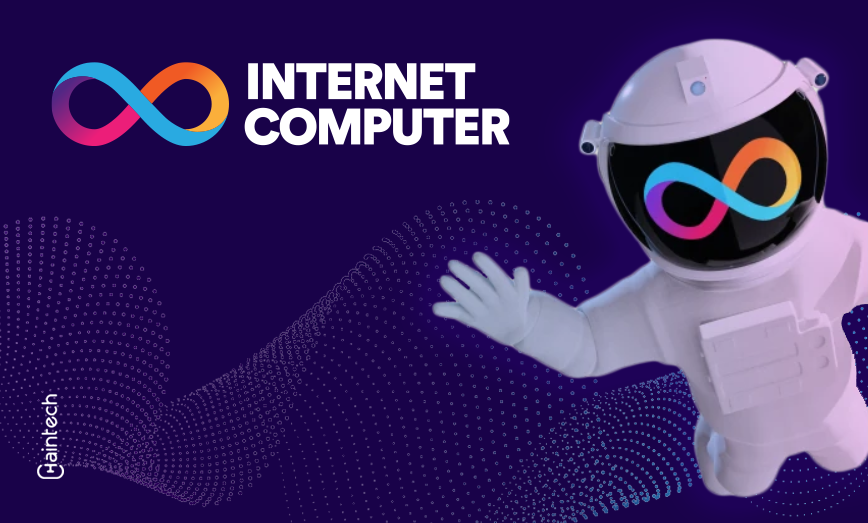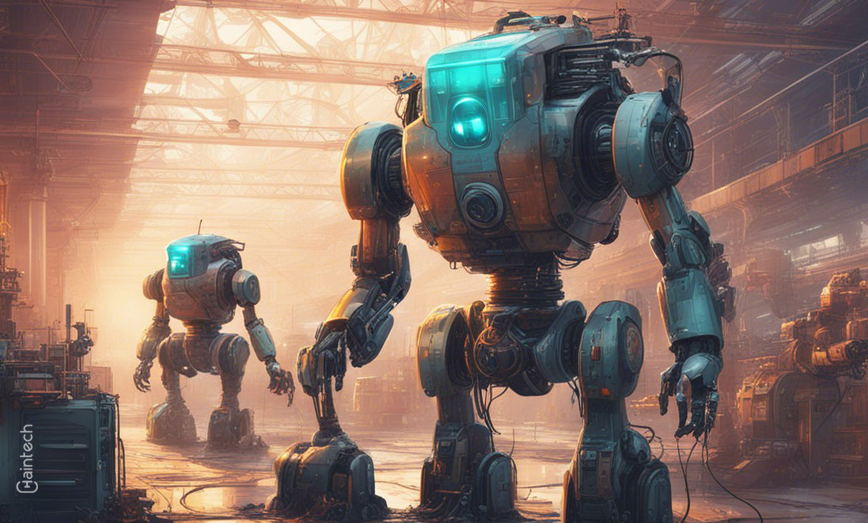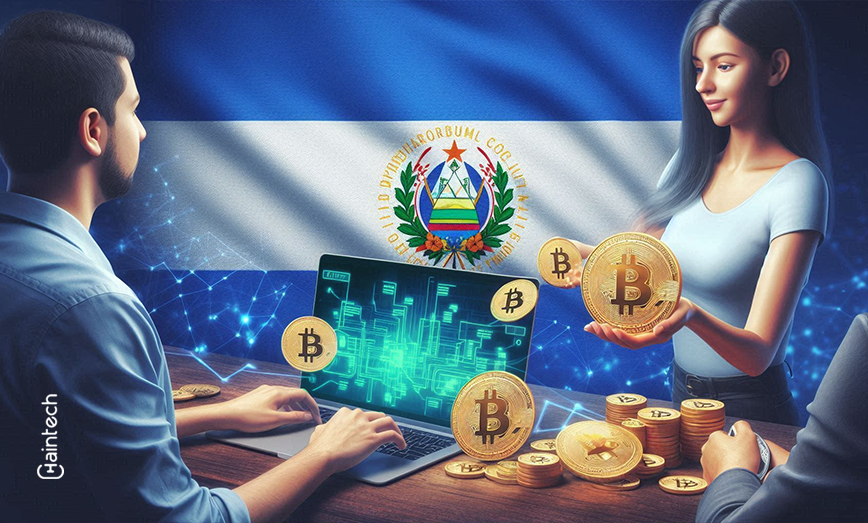Overview of Internet Computer (ICP)

Introduction
These days, cryptocurrency is a big part of our lives. It gives us more freedom and access than ever before. But what if problems happen with the internet, which is what these transfers depend on? If we can’t connect to the internet, we can’t sell, exchange, or manage our cryptocurrencies, so our assets stay the same. The Internet Computer Project (ICP) is a project that aims to solve these problems. Dominic Williams, who started the project in 2014 and was first known as “DFINITY,” gave it a boost when its coin, ICP, was listed on Binance in 2021. With a team of 200 committed workers, Internet Computer wants to decentralise the web so that no one group can control it.
Picture a world where no one can block the internet, not even big businesses or states. The Internet Computer wants to make this dream come true by giving people and groups the power to control their online lives.
It’s not just about crypto, though. It’s also about picturing a world where the internet works on a decentralised network, like the easy-to-use systems on our phones. Internet Computer is at the forefront of the pack with a new operating system that could change the way we use coins.
Let’s understand more about the Internet computer in this blog.
What is Internet Computer?
ICP, or Internet Computer, is like the fast and powerful peer of the internet. Ethereum brought smart contracts and new things like DeFi and NFTs, and Bitcoin started the digital gold rush. ICP is the next big thing. Boosting the internet and making it quite fast and strong is what it’s all about.
Imagine that the Internet Computer is the internet’s superhero. If Bitcoin is digital gold and Ethereum is the smart contract expert, then Internet Computer is the internet’s superpower. This is a blockchain that can grow as big as you want and works as fast as the internet. We can come up with completely new ways for tools and apps to work with Internet Computer.
Now, what’s the deal with ICP? It’s a set of rules and tools that let internet data centres from around the world work together to make the internet less centralised. Big cloud service providers aren’t the only option. You can also choose ICP. ICP wants to give people power again by letting anyone join the network.
And here’s the cool thing: you can use the ICP code for more than just that. Yes, you can trade it on Coinbase and other sites, but it’s much more than that. It works like a magic key to make the Internet Computer do what it can do. For being a good internet user, you can earn ICP and use it to pay for things on the network. You can also have a say in how the network grows and changes.
The internet is controlled by a few big companies, but ICP is changing that. The goal is to make the internet decentralised so that everyone can participate. With ICP showing the way, the future looks bright for a more open, fair, and free internet for everyone.
What is ICP Token ?
To put it simply, the ICP coin is the digital money that runs the Internet Computer Protocol (ICP). It uses a special agreement model called Threshold Relay to make sure that transactions are safe, quick, and cost as little as possible.
The ICP token is given out to node owners who help with the network’s computing power as a reward. There are a total of 1 billion tokens available. It is meant to be deflationary, which means that some tokens are discarded periodically to reward miners and node owners. This stabilizes token value.
ICP tokens serve various purposes within the ICP network:
1. Governance: Holders can stake their tokens to create Neurons, enabling them to participate in network governance by voting on proposals and earning rewards.
2. Canister fees: ICP tokens can be converted into Cycles, stable-priced units used to pay fees for using canisters (smart contracts) within the network. The cycles used are burned to prevent inflation.
3. Rewards: Users who lock their ICP tokens can vote, and the network rewards them based on the number of tokens locked. Data centers also receive rewards for securing the network.
4. Burn for cycles: Excess ICP tokens can be burned to generate cycles, which are then used to power smart contracts on the network. This process helps regulate the token supply and ensures the stability of the network’s operations.
How does Internet Computer work?
The Internet Computer (ICP) works like a giant, decentralized brain that spans the entire globe. At its core are nodes, which are like little internet hosts spread out everywhere. These nodes team up to process transactions and store data, creating a super secure and decentralized alternative to traditional servers.
What sets the ICP apart is its cutting-edge architecture, which allows it to handle transactions and run applications on a massive scale. This means it can process tasks at lightning speed, making it one of the most powerful networks out there.
Behind the scenes, the ICP uses something called Chain Key Technology, a fancy term for a bunch of systems like Threshold Relay consensus, Network Nervous System (NNS), and Internet Identity (IID). These systems work together to keep the network running smoothly and securely.
Picture this: the ICP network consists of 48 data centers worldwide, each filled with thousands of nodes. These nodes form subnets, which are like mini blockchains, and use Proof-of-Stake mechanism to validate transactions and earn rewards.
But here’s where it gets really cool – instead of traditional smart contracts, the ICP uses something called canisters. These canisters are like supercharged smart contracts that can replicate and update themselves across the network without any help. This makes the ICP incredibly efficient and fast.
What’s more is that users don’t have to pay gas fees to use canisters, making them even more user-friendly. And to keep everything running smoothly, the ICP has the Network Nervous System (NNS), which oversees things like node performance and subnet creation.
All in all, the Internet Computer is revolutionizing the way we think about the internet. With its decentralized power and lightning-fast speed, it’s paving way for a more open, secure, and efficient digital future.
What is the Smart Contract “Canisters”?
Canisters reside on the Internet Computer and are similar to advanced smart contracts. They serve as the foundation for developing decentralised apps (DApps) on this cutting-edge blockchain. Think of them as powerful little programs written in Web Assembly, packed with logic and memory pages.
One of the coolest things about canisters is that they can interact directly with your web browser, streaming information without needing you to own any tokens. This means you can access blockchain services seamlessly, right from your browser.
But here’s where it gets really interesting – there’s no limit to how many canisters can exist on the Internet Computer. And guess what? They can all operate concurrently and indefinitely, enabling the development of DApps with enormous user and data capacities.
Canisters are even better because they are almost impossible to break or stop. They take care of everything, from security to databases, so developers can focus on making great apps without having to worry about the little things.
And get this – canisters are smart. They can replicate and update themselves across different parts of the network without any help, ensuring efficiency and speed.
Features of Internet Computer
Consensus method:
Proof of Stake and Validation (PoSV) is the unique consensus method used by the ICP network. This makes sure that transactions are put to the blockchain safely and securely, which keeps the network’s integrity.
ICP Token:
The ICP coin is the network’s own token. It’s a reward for validators who take part in the PoSV consensus process, which encourages the safety and integrity of the network.
Code Deployment:
Developers can safely and decentralizedly put their code on the ICP network and run it. With this feature, the platform is safer and more reliable overall, which makes it a good choice for coders.
Code Execution:
The network is set up to run code at a large scale, which lets high-performance apps be put into use. This ability to grow is very important for the network to be able to handle many different types of apps and use cases.
Conclusion
As the internet changes all the time, big tech companies often take over and stop new ideas from coming up. The Internet Computer shines a light on a more open and creative future.
Despite some fluctuations, the ICP tokens remain appealing to long-term investors, reflecting confidence in the project’s potential. Moreover, the development of test applications with just 1,000 lines of code showcases the efficiency and power of the Internet Computer platform.
With tools like the Motoko programming language and the developer-friendly SDK, the Internet Computer makes it easy for developers to develop cutting-edge apps.
The Internet Computer will change the way the internet works in the future by creating a more open, decentralised, and new environment for everyone. The Internet Computer is ready to lead us into a new era of digital creativity and access, all thanks to its cutting-edge technology and clear vision.









